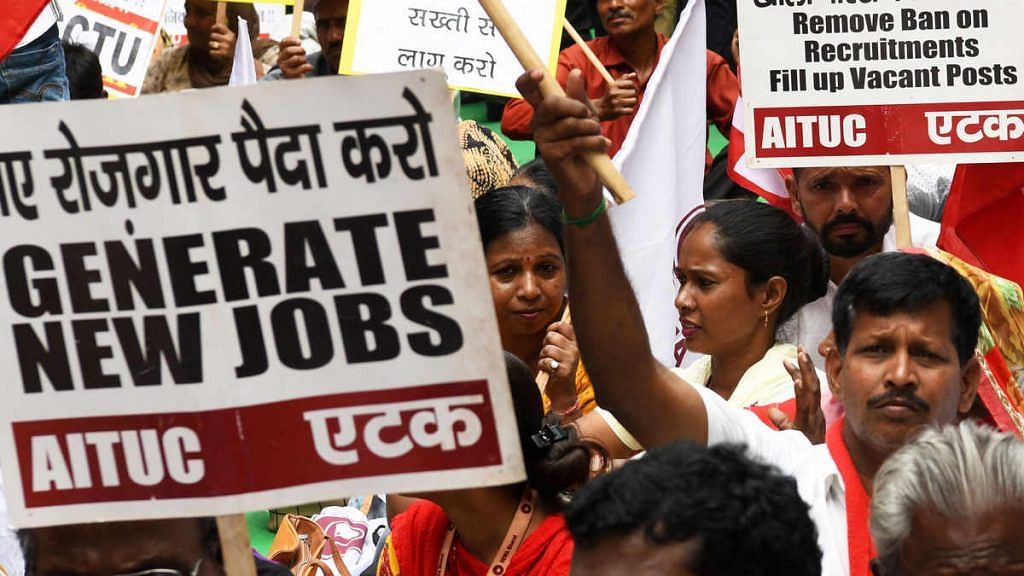New Delhi: The Narendra Modi government has proposed to make it difficult for employee unions to go on strike, while easing the way for firms to retrench workers, in the new labour code on industrial relations that it is scheduled to table in Parliament Wednesday.
Termination of service of a worker at the completion of tenure of fixed-term employment will not be considered retrenchment. At the same time, even though the government has retained the clause that firms with more than 100 employees will need permission from the appropriate government for closure, retrenchment and layoffs, it has provided the flexibility to state governments to reduce or increase this threshold.
This will protect state governments like Rajasthan, Andhra Pradesh, Uttar Pradesh, Haryana, Jharkhand, Madhya Pradesh, Assam and Uttarakhand that had increased this threshold to 300 workers, government sources said.
The bill also proposes a more stringent threshold for a trade union to be considered as a sole negotiating union. A union will be recognised as the sole negotiating union only if it has the support of 75 per cent or more of the workers on the muster roll in an establishment. The earlier version bill required that 66 per cent of the workers should support the union.
Also read: Bill to protect rights of transgenders passed in Rajya Sabha
Fixed-term employment to be new category
The bill proposes to include mass casual leave in the definition of ‘strike’ and stipulates that a 14-day notice will have to be given before a strike or lockout.
The bill, which received a cabinet nod last week, proposes to include fixed-term employment as a new category. The bill proposes that the fixed term employee will get all statutory benefits like social security, wages, etc. at par with the regular employees who are doing work of the same or similar nature.
The new code will reduce the compensation to retrenched workers to 15 days of average pay for every year of completed service as against 45 days of average pay for every year of completed service proposed in the earlier version of the bill.
In addition, it also introduces the flexibility to allow the central government or the state governments to fix the number of days for which the average pay will be provided as compensation.
The bill proposes to combine the three relevant acts — The Trade Unions Act, 1926, The Industrial Employment (Standing Orders) Act, 1946 and the The Industrial Disputes Act, 1947 — as the government looks to bring in labour reforms to improve the ease of doing business in India. The bill, after being tabled in the Lok Sabha, is likely to be referred to the standing committee for further discussions.
Parliament has already passed the code on wages earlier this year. The other codes that are in various stages of drafting and approval include the code on social security that is in the drafting stages and the code on occupational safety, health and working conditions code 2019 that is with the standing committee of Parliament after being introduced in the Lok Sabha in July this year.
Also read: Modi govt disinvesting in PSUs crucial but here’s why privatisation is easier said than done
